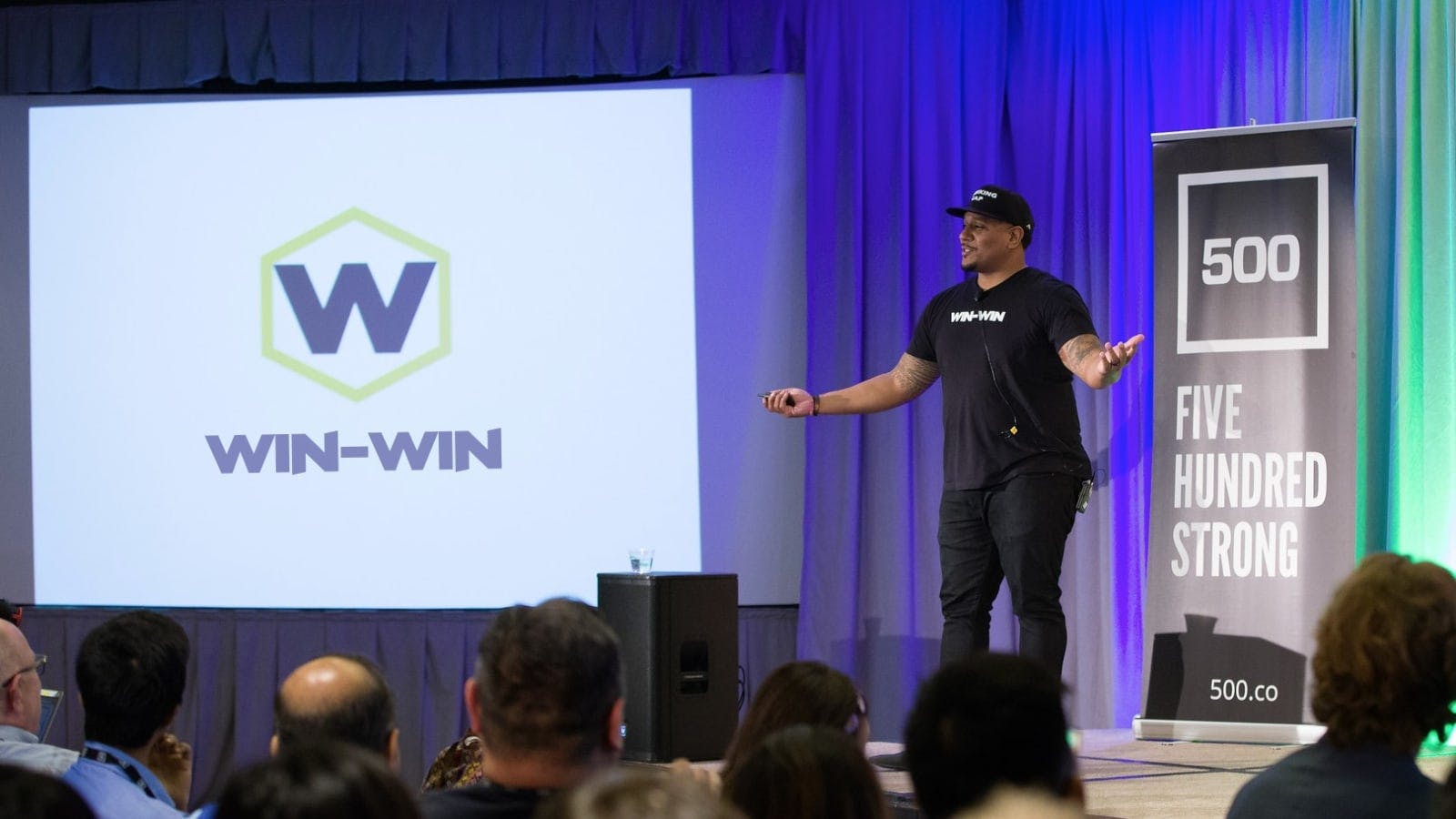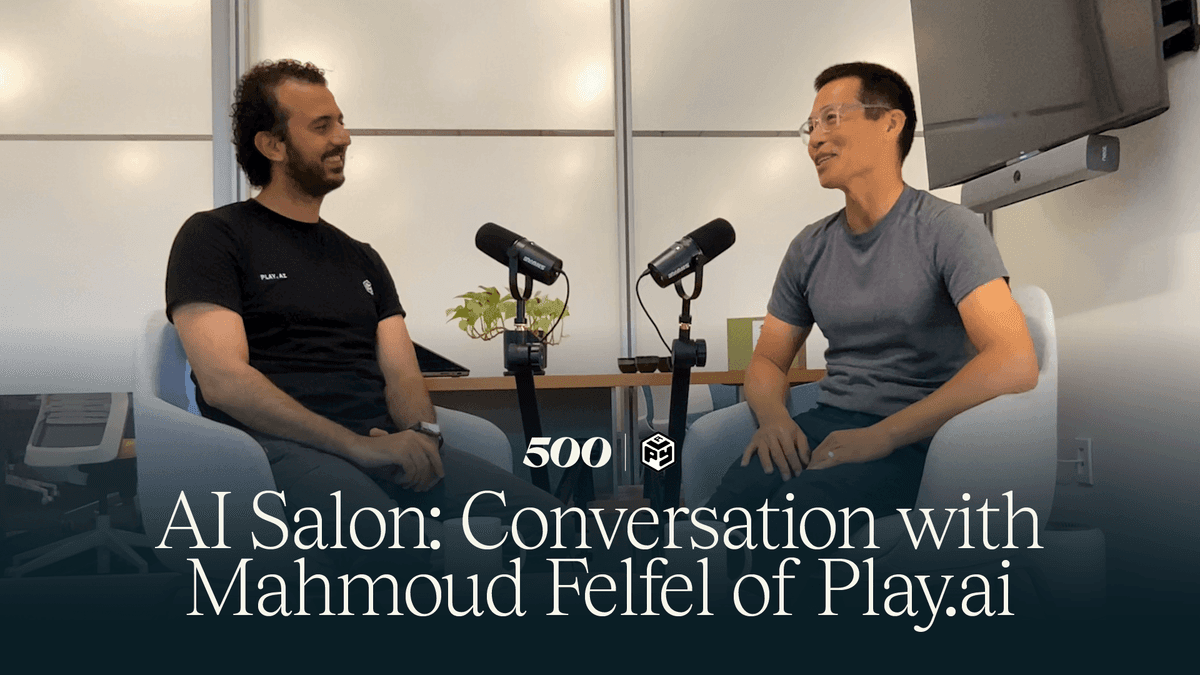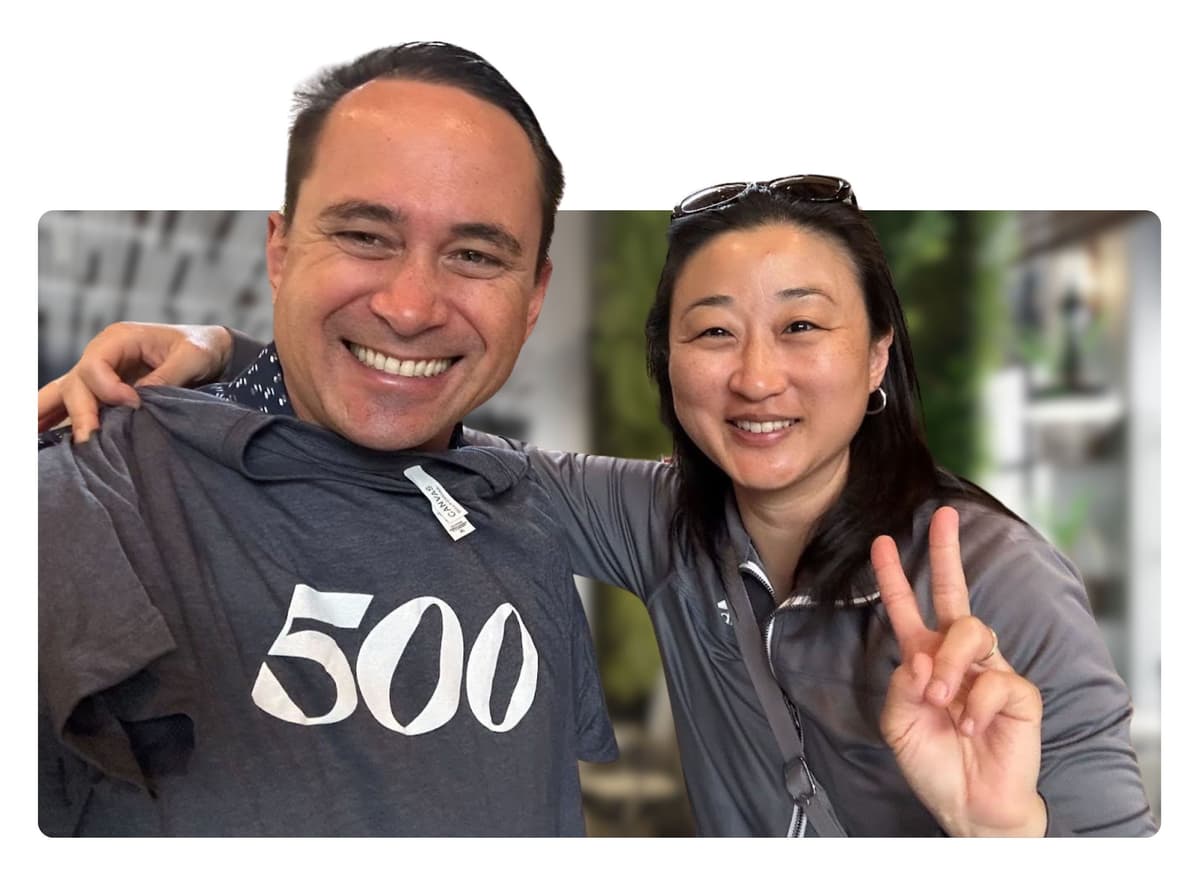Mike Brown has 4 key pieces of advice for founders.
2020.11.17

500 Global Team

To understand Win-Win, a gamified giving platform, you have to understand founder and CEO Mike Brown’s journey. It started in Houston, Texas, where Brown grew up a football star and 4.0 student, with a charitable streak. “My mom raised me to be impact-driven, from my earliest memories going and spending our Thanksgiving or Christmas feeding the homeless or giving back,” he said.
As captain of the Blue Devils football team at Duke University, Brown continued to lead charity initiatives, and launched a non-profit in 2010 while he was playing NFL football with the Indianapolis Colts. He was contemplating getting an MBA when a friend introduced him to Draper University, led by venture capitalist Tim Draper. He applied to Draper University, and was accepted into the first cohort in 2013. So Brown moved to Silicon Valley, and after nine weeks in the Bay Area, he was hooked on tech. Brown made the move out to Silicon Valley with his wife, baby and another on the way, with his sights set on one day starting his own company. “I really just looked at the intersection of my three passions — sports, philanthropy, and tech,” he said.
Around that time, fantasy football was rising in popularity. It was also being heavily promoted– just not by the athletes in the game. He asked his friends in the League how they felt about the rise of fantasy. To put it simply, they weren’t thrilled that others were profiting off their likeness without their involvement. That’s when it hit Brown; What if he could help increase philanthropic giving by offering a team’s fans experiences and items they couldn’t buy, like an autographed, game-worn jersey or dinner with their favorite athlete. “I asked my NFL friends, ‘What if I could get your fans to donate and support your charity through this gaming thing they’re already doing; is that valuable enough to sign some autographs or send some tickets?’” he recalls. They agreed, and Win-Win’s gamified giving platform was born.
Win-Win has raised $2M in funding to date, from investors like 500 Startups, Duke University, Backstage Capital, and Black Star Fund. The platform has partnered with 175+ professional athletes, including two-time Super Bowl champion Malcolm Jenkins raising funds for the Malcolm Jenkins Foundation; All-Pro cornerback Patrick Peterson, supporting Baton Rouge Area Foundation; and former NBA All-Star Baron Davis, raising funds for the GetSchooled Foundation. On top of that, Win-Win is nabbing a conversion rate of 5% on its platform from social-media clicks to make a voluntary donation, when the industry standard is less than 1%.
But it wasn’t all smooth sailing. Here’s what Brown learned as he pivoted and iterated.
Prepare before you start
Although he was sure he wanted to start a tech company in 2013, Brown didn’t immediately have a winning idea. While he was waiting for inspiration to strike, he prepared diligently to step into the role of founder and CEO. He taught himself to code for about a year, before he moved to the Bay Area. “Anything I put my time or effort into, I want to be the best,” he said. “And I’m hearing that people [who start tech companies] know how to code, design, build, be scrappy. I had the focus and discipline to stick with it; not to be a developer, but understand the concepts and have conversations with developers.”
When he moved to Silicon Valley, he decided it would be best to see inside the walls of a startup before he founded one of his own. So, Brown joined an adtech startup, Kiip, and quickly rose to lead its growth sales team. All the while, he was noodling on what type of company he would want to run, and stumbled across his answer when colleagues tried to rope him into a fantasy league.
Focus on customer development early on
Brown found some success early on, getting athletes to sign up with Win-Win, and even a couple who signed on as angels. He raised $1M right out of the gate, as he was set to go through 500 Startups’ accelerator program. He spent a lot of his energy and money on talent, both athletes on the platform as well as hires within his team,and not quite enough time on customer or product development, he said, “really understanding from the user side what and how it should work.”
For instance, Win-Win launched with the fantasy-sports model, which was basically a fan duel hosted by a player. You join the tournament, build your lineup, and pay an entry fee of which a portion goes to charity. The company retains a portion — and are entered to win great prizes. The model sounds fun for the casual fan, but Brown discovered that true, diehard fantasy players are in it for money, not experiences or philanthropy. “They were actually building these scripts and algorithms to win and get the cash prize,” he said. “We didn’t have the product-market fit we originally thought we would. We weren’t getting the buy-in or traction we thought after the first couple campaigns.”
Once Brown and the Win-Win team did more research and customer development, they realized, “Oh, this is too hard for people that care about giving to charity and meeting the player.” So, they iterated to make the gamified giving process much simpler. Instead of building a lineup of fantasy athletes, players were just making predictions on which team would win. “We got a lot more buy-in from users as a result,” he said.
Find supportive peers and mentors who keep you honest
Brown was accepted into 500 Startups’ Batch 20 in 2016, where he thrived. He worked on his business model during the program, understanding that there are different ways to approach making money. “It’s about understanding how you look at the product or service you are providing, and then find revenue streams within that,” he said. He had the revelation that brands could sponsor tournaments for athletes with whom they already work, allowing the companies a platform to reach a lot of people in a way that’s “philanthropically aligned,” said Brown. “That was the evolution of our model, and it happened at 500. I can’t say enough how impactful it was to be sitting alongside a bunch of other great hustlers and learning from each other, building relationships.”
He also found a great mentor in 500 Startups’ Venture Partner Clayton Bryan. “Clayton kept me honest,” he said. “He was pushing me or challenging me on different things, like, ‘It’s all good to have these players on Win-Win, but we need to get into these metrics; what’s going on with customer acquisition?’ I looked forward to those conversations, because that’s what I wanted and needed — someone to look beyond the glitz and glamour of the vehicle, and help me understand what I need to be working on or doing.” Brown still remembers lessons from his time with the program, including that “the metrics matter.” Understanding how best to track your company is critical to its trajectory. “If you are not tracking it, how do you measure success?” he asked.
“Don’t spend the money”
Brown remembers one founder who gave him an essential piece of advice he ignored. “He said, verbatim: ‘Do not spend the money; it always costs twice as much and takes twice as long. Trust me on this,’” he recalled. Since Brown saw fundraising success early on, he thought he’d be fine without that advice. “What I learned, which was very much true, is that customer acquisition and product-market fit both take time,” he said. “I hired 10 or 12 people full-time, right away, with no real vetting process. It was a little all over the place, and it cost me a lot of time and money I couldn’t get back.”
“Your money has to be tied to ‘thoughtful decisions and processes,’” Brown said. Before you build a product, you need to engage in customer development. Before you build a beautiful app, find your product-market fit — or it may never see the light of day. “If no one on your founding team has a strong finance background, invest in that,” he said. “A great thing that exists now is fractional executives. We have a fractional CFO now, who operates and supports other startups. He can go in, manage our books, help us set budgets and be a safety layer” before investing in an expensive opportunity that may not pay off. Brown said he’s learned a lot from mistakes, and Win-Win is on the right path now with a new round of fundraising on the horizon. But if you stay mindful, find the right team support, and use your runway wisely, you can avoid some of the early pitfalls that may slow down your startup.
Under no circumstances should any information or content in this post, be considered as an offer to sell or solicitation of interest to purchase any securities or offer to provide any services. This post includes the views and opinions of independent third parties that are not related to or controlled by 500 Startups. All views and opinions presented herein by such third party participants do not represent those of 500 Startups or any of its affiliates or representatives. 500 Startups makes no representations or guarantees as to the accuracy or completeness of the above observations or content and bears no liability on grounds of any person relying on the content or statements above.






